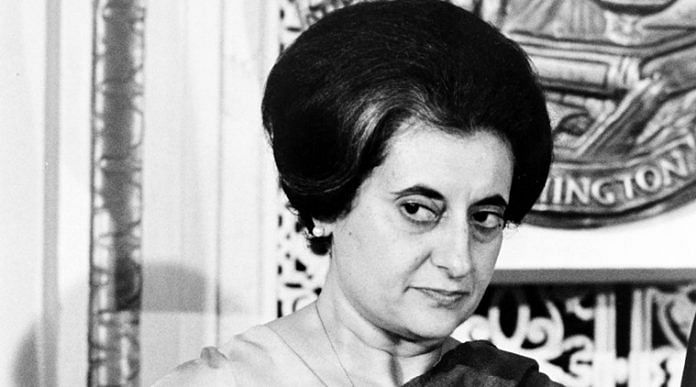Even the most ardent supporters of Prime Minister Narendra Modi say that there are many similarities between him and former PM Indira Gandhi. Her authoritarian style of leadership, the complete loyalty she demanded from her party members and cabinet, and the strong role of the state that she envisioned in her policies are just some commonalities. The cult-like following that she enjoyed — illustrated by the slogan ‘Indira is India, and India is Indira’— is mirrored in the sentiment of ‘ghar ghar Modi’ and Modi bhakti that is present across many parts of the country today.
On her 100th birthday anniversary, we ask experts: Is Modi the new Indira?
Ever since he became the Prime Minister, many commentators have compared Narendra Modi to Indira Gandhi. But any attempt to equate the two leaders is a one-dimensional and facile exercise driven by an excessive focus on personality.
Essentially, Indira Gandhi’s decision to impose the Emergency is used to build a case that both these strong-willed leaders are very similar. However, comparing them on the grid of authoritarianism alone would be a mistaken equivalence since the differences between them far outweigh the similarities.
The fundamental difference between the two leaders has to do with their varied backgrounds and ideologies. Modi is a creation of the RSS, his entire ideological upbringing, indoctrination and politics has been nurtured in an RSS environment, whereas Indira Gandhi was the product of a liberal, free-spirited environment. She was openly opposed to the RSS, completely non-sectarian and secular, although she tactically flirted with the communal card occasionally as she did in Kashmir in 1983. Likewise, their economic and foreign policies are very different as also their attitude towards the poor and the underprivileged.
Here are other sharp perspectives on the comparison between Indira Gandhi and Narendra Modi:
Mridula Mukherjee, political historian
Sanjay Nirupam, president, Mumbai Congress Committee
Sagarika Ghose, journalist and author of ‘Indira, India’s Most Powerful Prime Minister’
Sangit K. Ragi, professor of political science, Delhi University
At the same time, there is no doubt that many of Indira Gandhi’s important political actions were taken with a view to concentrate power and authority in her own hands and in the Prime Minister’s Office.
The keystone of her strategy was an unprecedented centralisation of power within the ruling party and the central government. This produced a new political process, which weakened institutions and created a personalised regime culminating in the Emergency that unquestionably damaged India’s democracy. This was a blot on her political career which has clouded assessments of her leadership.
But Indira Gandhi’s legacy cannot be defined by or confined to the Emergency or her victory in the 1971 India-Pakistan war; she made crucial policy interventions that underline her commitment to the uplift of the poor through policies such as the nationalisation of banks, abolition of privy purses and nationalisation of insurance. Significantly, these policies were directed against the rich and did not hurt the poor, whereas Modi’s decisive demonetisation move had no positive impact; it broke the informal sector, and has greatly harmed the poor.
When one takes a retrospective look at Indira Gandhi’s career, what is striking is how her leadership style and politics changed. Her career highlights the varied and altered pathways of political leadership in India. It shows that when institutions are weakened, non-institutional pathways become significant, which has had detrimental consequences for the Congress party, policy performance and democracy.
Zoya Hasan is Professor Emerita, Centre for Political Studies, Jawaharlal Nehru University.
TalkPoint compiled by Nikhil Rampal.



